אורנים דוט קום – מגזין האינטרנט של מכללת אורנים
-

המהפכה בחינוך מתחילה באורנים
5 מרץ, 2018 -
קבורת מתאבדים : תרבות מול מציאות
17 ספטמבר, 2015 -
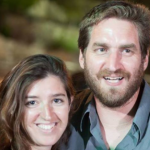
מורה נבוכים
3 אפריל, 2015 -
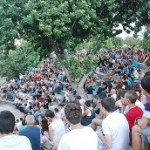
נפתח בית הספר האנתרופוסופי במכללת אורנים
8 ספטמבר, 2013 -

האם בתי הספר הממלכתיים ישרדו את המאה ה-21?
6 ספטמבר, 2017 -

מעשיות הילדים: עד כמה יש בהם מסרים מגדריים ?
17 ספטמבר, 2015
-
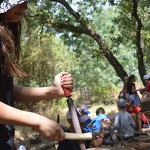
אנתרופוסופיה? חינוך יער? מעכשיו גם באקדמיה!
23 יולי, 2018 -
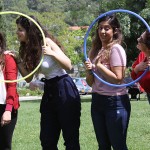
אמנויות בחינוך: מפתח לעתיד מבטיח בעידן הטכנולוגי
10 מאי, 2018 -

המהפכה בחינוך מתחילה באורנים
5 מרץ, 2018 -

האם בתי הספר הממלכתיים ישרדו את המאה ה-21?
6 ספטמבר, 2017 -
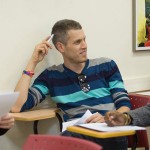
נא להכיר: הבוגרים של אורנים שמחוללים את מהפכת החינוך בישראל
26 יוני, 2017 -

לוח, גיר ואייפד: איך מתמודדים עם תלמידי עידן הדיגיטל?
17 מאי, 2017
Conference Opening Words
How Would Shakespeare Fare with Twenty-First-Century Discourse?
Good morning and welcome to the 25th conference of the English Language and Literature Department. As always, this exciting day promises to be informative but also entertaining, a true celebration of the department students’ achievements. It so happens that this year the world is marking the 400th anniversary of Shakespeare’s death. The conference therefore offers a most befitting occasion to celebrate this anniversary as well.
As you undoubtedly know, Shakespeare was a past master of language. As students of literature and linguistics you also know that language is in a constant state of flux. This applies, for example, to pronunciation, spelling, grammar, and lexis. Reading Shakespeare raises awareness of linguistic change as we often struggle to understand his language. This makes us wonder what Shakespeare would think of today’s English, especially in regard to some of the new lexical items recently documented in spoken and written discourse. Would Shakespeare say English is in a state of decline or would he embrace the new creative use of language? Would he struggle to comprehend the purport of twenty-first-century English just as we sweat to do the same with his writing?
I spent some time yesterday on the Cambridge Dictionaries Online Blog looking at some new lexical items, both words and phrases, recently observed in written and spoken English. It’s probably too early to determine which will be short lived and which will find their way into mainstream discourse. Let me provide you with some contextualized examples based on lexical items and their definitions taken verbatim from the Cambridge Blog; the texts I created wondering how they would sound to Shakespeare if he were engaged in a genuine or virtual chat. Mind you, he’d need some training with the latter, I expect.
So, here’s the first text:
I was in my kicks yesterday when I pocket dialed the ride-hailing service. Within ten minutes a calm though not wavy driver showed up. He had two ear-jackets – each a different colour and size.
Glossary
kicks – trainers
pocket-dial – to call someone by accident with a phone that is in your pocket
ride-hailing service – an on demand service for which people use a smartphone app to arrange a ride
calm! – good, cool
wavy – stylish
ear-jacket – a type of earring with a decorative part that curves under the lobe from behind
Even though I suffer from digital amnesia, I don’t consider myself a member of the switch and swipe generation. Not sure which generation I belong to if I’m busy planning a grey gapper year with my wasband.
Glossary
digital amnesia – the inability to remember basic things, such as telephone numbers, dates, etc, as a result of over-reliance on mobile phones, the Internet, etc., for storing information
switch and swipe generation – the younger generation who experience more change in their lives than their parents especially in their sexual partners, homes and jobs
grey gapper – a person of retirement age who takes a year out of their normal life to go travelling
wasband – a former husband
I could of course share other interesting items but I’ll leave those for a less formal convo. On account of time poverty, not to mention decision fatigue, I think I’ll engage in some farecasting shortly though I’ll have to be careful not to overdo it on account of the risk of cybersickness.
Glossary
convo – a conversation
time poverty – the lack of time to do anything to improve your life or for personal fulfillment or enjoyment due to the amount of time spent doing unpaid work
decision fatigue – a decreased ability to make decisions as a result of having too many decisions to make
farecasting – predicting the optimum date to buy a plane ticket, especially on a website or using an app
cybersickness – a feeling of nausea brought about by looking at the screens of electronic devices
I trust you all agree that Shakespeare would have quite some catching up to do in language and culture, not to mention, technology. Education to a great extent means learning to function in a dynamic, changing world. So without further ado, let’s enjoy the richness of language and literature and the promise of change in our own and others’ education.
Reference
For new words and their definitions, see the blog from Cambridge Dictionaries Online https://dictionaryblog.cambridge.org/category/new-words/
Elisheva Barkon
Head of the Department of English Language and Literature
